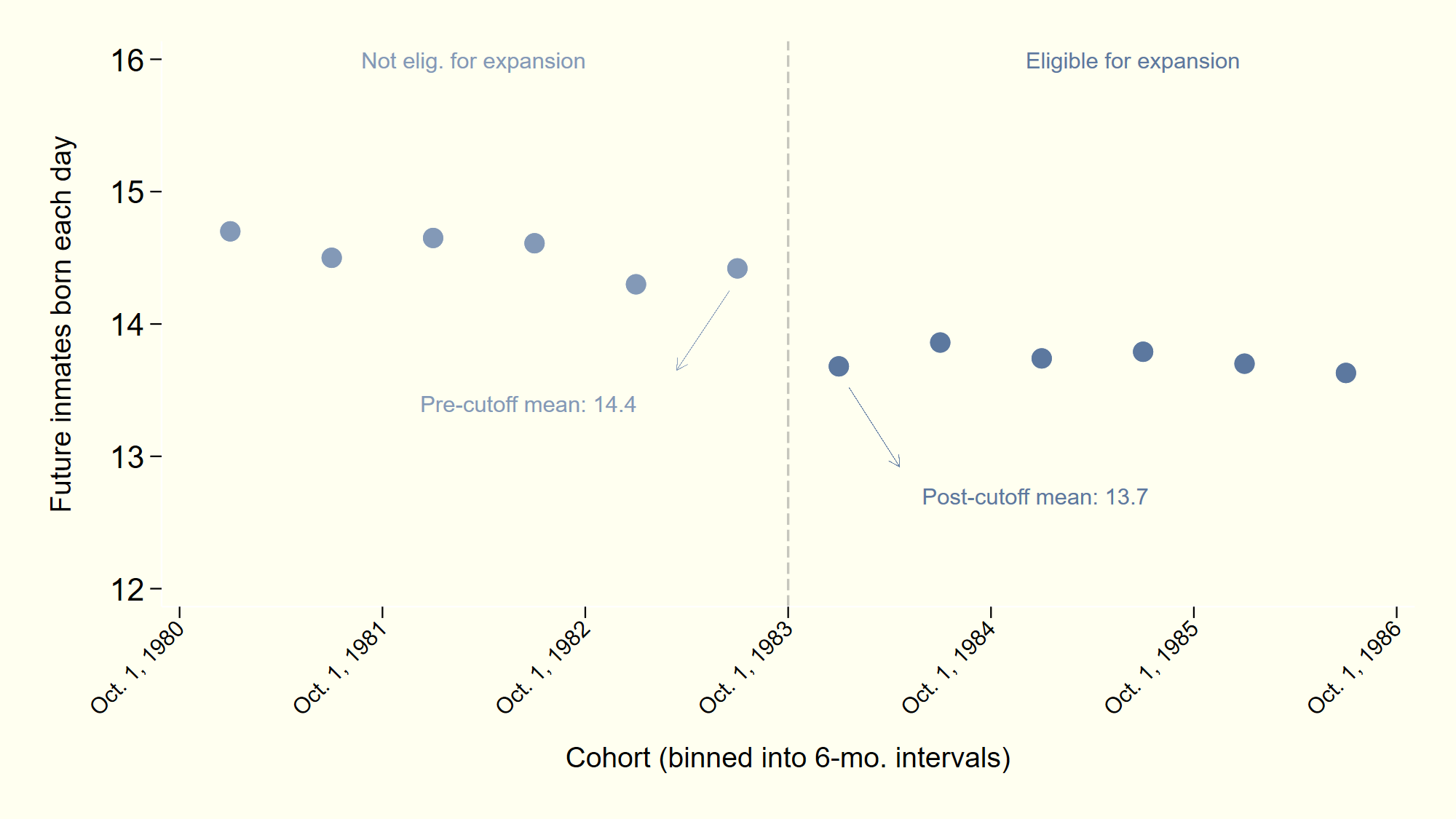Above: We show that adult incarceration falls sharply beginning with the cohort born on October 1, 1983, which coincides with the first cohort eligible for a large expansion of youth Medicaid eligibility.
American Economic Journal: Applied Economics, Forthcoming
Awarded IPUMS Best Graduate Student Research Using Health Surveys
Download paper
Abstract
This paper identifies an important spillover associated with public health insurance: reduced incarceration. In 1990, Congress passed legislation that increased Medicaid eligibility for individuals born after September 30, 1983. We show that Black children born just after the cutoff are 5 percent less likely to be incarcerated by age 28, driven primarily by a decrease in incarcerations connected to financially motivated offenses. Children of other races, who experienced almost no gain in Medicaid coverage as a result of the policy, demonstrate no such decline. We find that reduced incarceration in adulthood substantially offsets the initial costs of expanding eligibility.

